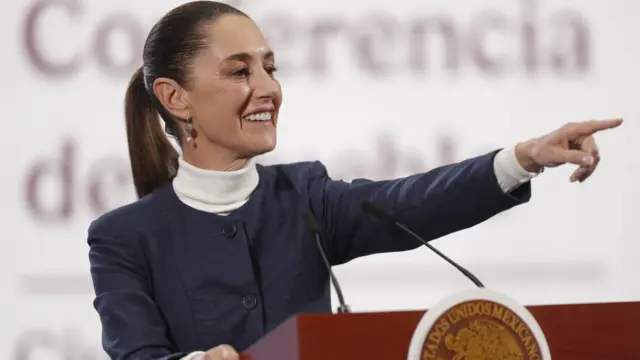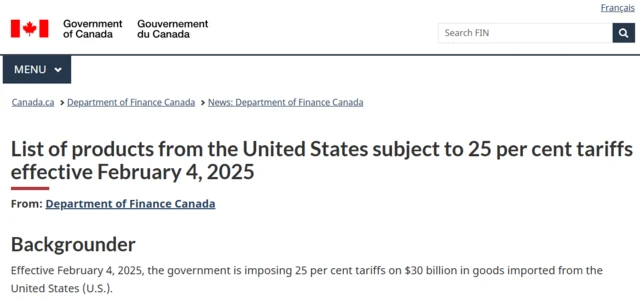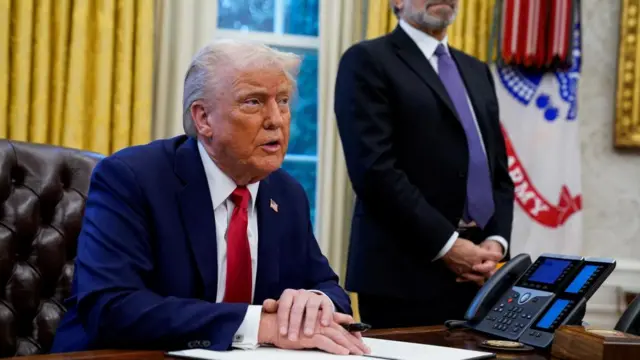Trump to speak to Xi Jinping in the next 24 hourspublished at 20:32 GMT 3 February
President Trump is expected to speak with Chinese President Xi Jinping within the next 24 hours, his spokesperson has said.
White House press secretary Karoline Leavitt made the comments to Fox News a little earlier.
As a reminder, Trump announced that the US would introduce a 10% tax on goods from China, starting from Tuesday.
In response, China said it would file a case against the measure at the World Trade Organization.














